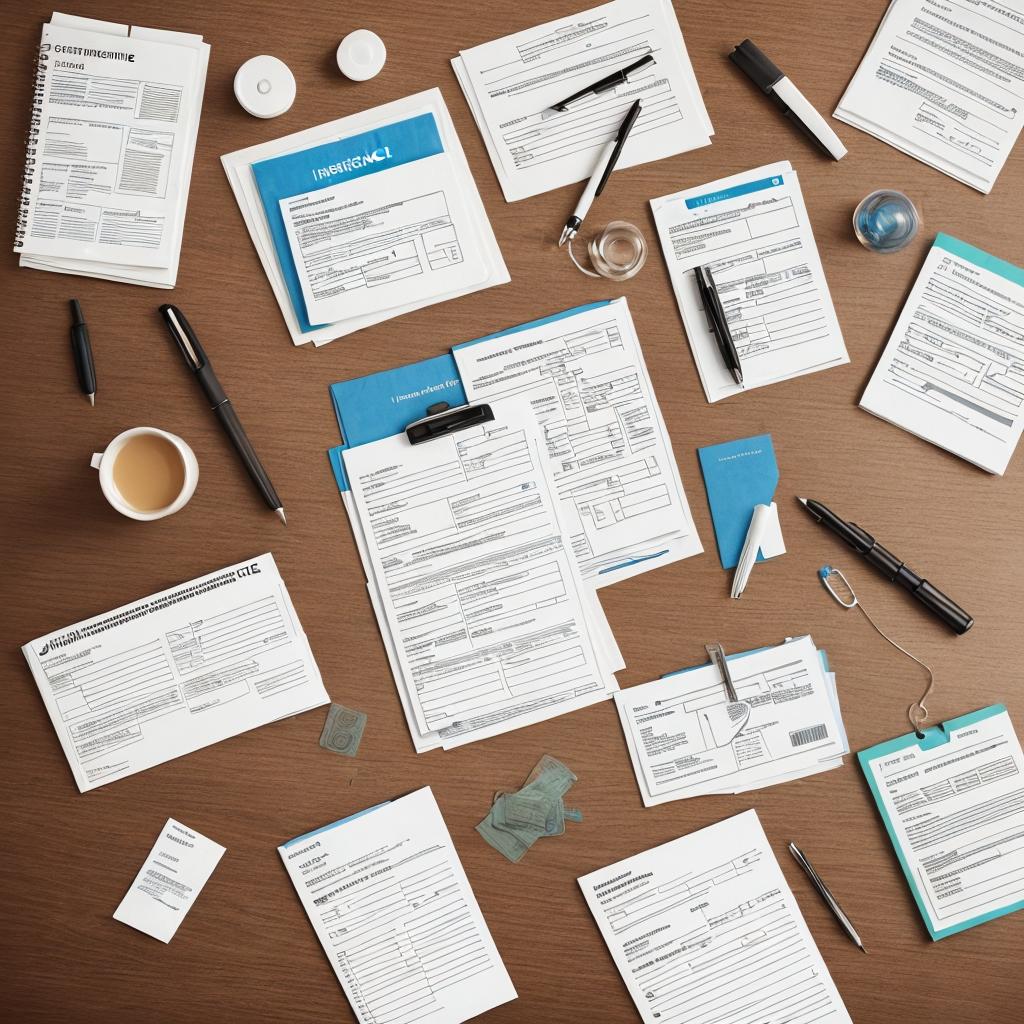Six Essential Documents for Health Insurance Submission

Are you ready to tackle the world of health insurance submission?
Well, hold on tight because we’ve got the inside scoop on the six essential documents you’ll need to navigate this process with ease.
From personal identification and proof of insurance coverage to medical bills and records, we’ve got you covered.
Plus, we’ll even show you how to fill out the claim form and gather supporting documentation.
So sit back, relax, and let’s dive into the world of health insurance submission together!
Key Takeaways
- Valid government-issued photo ID, social security number, proof of residency, and other necessary documents are required for health insurance submission.
- Proof of insurance coverage should include insurance card, explanation of benefits, and insurance policy to demonstrate immediate and ongoing coverage.
- Medical bills and invoices should be included with detailed information to ensure accuracy and efficiency in the claims process and to verify services covered under the policy.
- Medical records and reports, such as doctor’s notes, lab results, and specialist reports, are essential to provide evidence of medical history and treatments for processing insurance claims accurately.
Personal Identification Documents
To successfully submit your health insurance application, you’ll need to provide personal identification documents. These documents are essential for verifying your identity and ensuring that you’re eligible for health insurance coverage.
The first document you’ll need is a valid government-issued photo ID, such as a driver’s license or passport. This will serve as proof of your identity and age.
Additionally, you’ll need to provide your Social Security number, which is crucial for the insurance company to verify your eligibility and prevent fraud.
Along with these primary identification documents, you may also be required to submit proof of residency, such as a utility bill or lease agreement, to establish your current address.
It’s important to note that the specific documents required may vary depending on the insurance provider and the type of coverage you’re applying for. Therefore, it’s advisable to check with your insurance company beforehand to ensure you have all the necessary personal identification documents ready for submission.
Proof of Insurance Coverage
Now let’s talk about providing proof of your insurance coverage.
When it comes to submitting your health insurance documents, it’s crucial to include the necessary proof of insurance coverage. Here are three key items you need to include:
- Insurance Card: Your insurance card is a vital document that provides immediate proof of coverage. It typically includes important details such as your name, policy number, and the contact information of your insurance provider. Make sure to include a clear, legible copy of both the front and back sides of your card.
- Explanation of Benefits (EOB): An EOB is a statement that outlines the services you’ve received and the amount covered by your insurance. It serves as proof that your insurance provider has processed and approved your claims. Include a copy of your most recent EOB to demonstrate your ongoing coverage.
- Insurance Policy: Your insurance policy is a comprehensive document that outlines the terms and conditions of your coverage. It includes information such as your benefits, exclusions, and limitations. Providing a copy of your policy shows that you have a valid and active insurance plan.
Medical Bills and Invoices
Include copies of your medical bills and invoices when submitting your health insurance documents. These documents are essential for providing proof of the medical services you have received and the associated costs. Medical bills and invoices should include detailed information such as the date of service, the name of the healthcare provider, a description of the services rendered, and the total amount charged. Make sure to include all relevant bills and invoices, including those from hospitals, doctors, specialists, and any other healthcare providers you have visited.
Including copies of your medical bills and invoices will help ensure that your health insurance claim is processed accurately and efficiently. It allows the insurance company to verify the services you received and confirm that they’re covered under your policy. Additionally, it helps to establish the amount you owe and the amount that will be covered by your insurance.
By submitting your medical bills and invoices along with your other health insurance documents, you can streamline the claims process and avoid any delays or complications. It’s important to keep a copy of these documents for your records as well.
Transition: In addition to medical bills and invoices, another crucial set of documents to include in your health insurance submission are your medical records and reports.
Medical Records and Reports
Gather and include your medical records and reports to ensure a smooth health insurance submission process. These documents are crucial for providing evidence of your medical history and the treatments you have received. Here are three key items to include:
- Doctor’s notes: These detailed records provide a comprehensive overview of your medical visits and the discussions you’ve had with your healthcare provider. They contain important information such as diagnoses, prescribed medications, and recommended treatments.
- Lab results: Including lab reports helps insurance providers understand the tests you have undergone and the results obtained. This can include blood work, imaging scans, biopsies, or any other diagnostic tests performed to assess your condition.
- Specialist reports: If you have seen any specialists, it’s essential to include their reports. These reports provide expert opinions, treatment recommendations, and evaluations of your condition from professionals with specialized knowledge.
By including your medical records and reports, you provide your health insurance provider with accurate and comprehensive information about your medical history. This helps them assess your health needs accurately and process your insurance claim efficiently.
Remember to organize your documents in a clear and easily accessible manner to make the submission process even smoother.
Claim Form and Supporting Documentation
To continue the smooth health insurance submission process, make sure you have completed the necessary claim form and gathered the supporting documentation. The claim form is a crucial document that outlines the details of the medical services you received and the associated costs. It is essential to fill out the form accurately and completely to avoid any delays or denials in the claims process. Along with the claim form, you will need to provide supporting documentation that verifies the services rendered and the expenses incurred. This documentation helps the insurance company validate the claim and ensure that the services were necessary and covered under your policy. Some examples of supporting documentation include:
| Supporting Documentation | Purpose |
|---|---|
| Medical bills and receipts | Provide proof of payment and expenses |
| Doctor’s notes and treatment plans | Outline the medical necessity of services |
| Laboratory and test results | Confirm the need for specific procedures |
| Prescription records and pharmacy receipts | Validate medication expenses |
Frequently Asked Questions
How Do I Obtain My Personal Identification Documents if I Don’t Have a Valid Id?
If you don’t have a valid ID, you can obtain your personal identification documents by contacting your local government office or Department of Motor Vehicles (DMV) for alternative options or requirements.
Can I Submit Photocopies of My Proof of Insurance Coverage, or Do I Need to Provide Original Documents?
You can submit photocopies of your proof of insurance coverage. Original documents are not required. Make sure the copies are clear and legible. Include all the necessary information to avoid any delays in processing.
Are There Any Specific Requirements for Medical Bills and Invoices, Such as a Maximum Time Frame for Submission?
You don’t need to worry about timeframes for medical bill submission. Just make sure your bills and invoices are clear and legible. Submit copies, not originals, with your health insurance claim.
Can I Request Medical Records and Reports Directly From My Healthcare Provider, or Do I Need to Go Through My Insurance Company?
You can request medical records and reports directly from your healthcare provider. However, it’s recommended to check with your insurance company first to see if they have any specific requirements or procedures in place.
Are There Any Specific Guidelines for Filling Out the Claim Form and Providing Supporting Documentation, Such as the Format or Size Restrictions?
When filling out claim forms and providing supporting documentation for health insurance, be sure to follow specific guidelines. These may include formatting and size restrictions for documents. Double-check with your insurance company for precise instructions.



